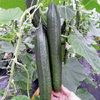Product Categories Vegetable Seeds A-C Carrots Carrot Berlicum 2 Vegetable Seeds
Carrot Berlicum 2 Vegetable Seeds
Product no.: SEEDV394
In stock
Delivery period: 1 working days
Accessories
| Product | Note | Status | Price | |
|---|---|---|---|---|
|
Other items you may also want to consider: |
|
from £10.36 * | |
|
* Prices plus VAT, plus delivery
Display accessory details
|
||||
We also recommend
|
Customers who bought this item also bought:
|
You may want to also consider this item:
|
Other items you may also want to consider:
|
* Prices plus VAT, plus delivery
Customers who bought this product also bought
|
|
Lettuce Little Gem Vegetable Seeds
from
£1.03
*
|
|
|
|
|
* Prices plus VAT, plus delivery
Browse this category: Carrots














 Propagator Sets Full Standard Seed Trays V8
Propagator Sets Full Standard Seed Trays V8






